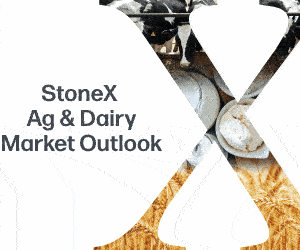 |
|||


|
 |


|
|
Guest Columns
Perspective:
Industry Issues
A permanent Section 199(A): Now that’s beautiful
Gregg Doud,
Gregg Doud, president and CEO, National Milk Producers Federation, contributes this column for Cheese Market News®.
The legislation President Trump has called a “big, beautiful bill” is slowly making its way through Washington. The House and Senate have both approved blueprints for the plan, but months of hard negotiations may lie ahead.
And while the tax provisions that make up the heart of the legislation will touch every American, one specific part of it — an initiative called Section 199(A) — is one we’re watching especially closely as talks unfold.
We’re working across the agriculture and cooperative communities to get this critical part of the 2017 tax legislation that lapses this year made permanent in a new law. And with tax season upon us, it’s a good time to explain why this is so important for agriculture and dairy cooperatives.
Section 199(A) of the Internal Revenue Code, also known as the Qualified Business Income Deduction, provides a deduction of up to 20% on qualified business income for certain pass-through entities, including partnerships, S-corporations and sole proprietorships. Dairy cooperatives, which are structured as pass-through entities, benefit from this deduction as it reduces their taxable income, allowing them to retain more earnings, which then can be reinvested into the cooperative.
That’s critical to help co-ops stay competitive in today’s marketplace. When Congress cut the corporate tax rate in 2017 from 35% to 21%, it recognized that other forms of businesses — including cooperatives — should also have an equitable tax reduction. Section 199(A) does that. It’s helped farmer cooperatives and their owners navigate through a global pandemic, geopolitical conflict, supply chain problems and record inflation. Allowing Section 199(A) to expire would raise taxes on agricultural cooperatives and their farmer-owners at a moment of renewed challenges; making it permanent will remove a critical piece of uncertainty for farmers and give them a chance to plan a brighter future.
Including Section 199(A) in tax legislation is critical for the continued economic stability of dairy farmers and the cooperatives they own. It helps co-ops make capital investments. It encourages investment in innovative technologies, sustainable practices and advanced infrastructure, all of which enable cooperatives to produce high-quality products at lower costs. And in the end, that benefits consumers, too — by providing them with affordable and nutritious dairy products.
Making 199(A) permanent also supports the whole reason the cooperative system was established under the Capper-Volstead Act passed more than a century ago, by keeping the playing field level with other businesses that benefit from tax provisions other than 199(A). Dairy cooperatives operate on principles of mutual assistance, democratic governance and equitable distribution of benefits. Section 199(A) aligns with these principles by providing a tax benefit that is shared among cooperative members.
Dairy needs Section 199(A) to thrive. That’s why we’ve been working across not only agriculture, but across the entire cooperative community, signing letters that include signatures ranging from community bankers to building contractors and that cut across the entire U.S. economy.
Section 199(A) doesn’t only support dairy farmers of all sizes, in all regions and the rural communities they support — it ensures economic stability, enhances competitiveness and serves consumers all across America.
That’s big. And, it’s beautiful. As the bill makes its way to the president’s desk this year, we’ll be fighting for Section 199(A) at every turn. It’s the right thing to do for dairy — and as it turns out, for everyone in our rural communities, too.
CMN
The views expressed by CMN’s guest columnists are their own opinions and do not necessarily reflect those of Cheese Market News®.
| CMN article search |

|
© 2025 Cheese Market News • Quarne Publishing, LLC • Legal Information • Online Privacy Policy • Terms and Conditions
Cheese Market News • Business/Advertising Office: P.O. Box 628254 • Middleton, WI 53562 • 608/831-6002
Cheese Market News • Editorial Office: 5315 Wall Street, Suite 100 • Madison, WI 53718 • 608/288-9090